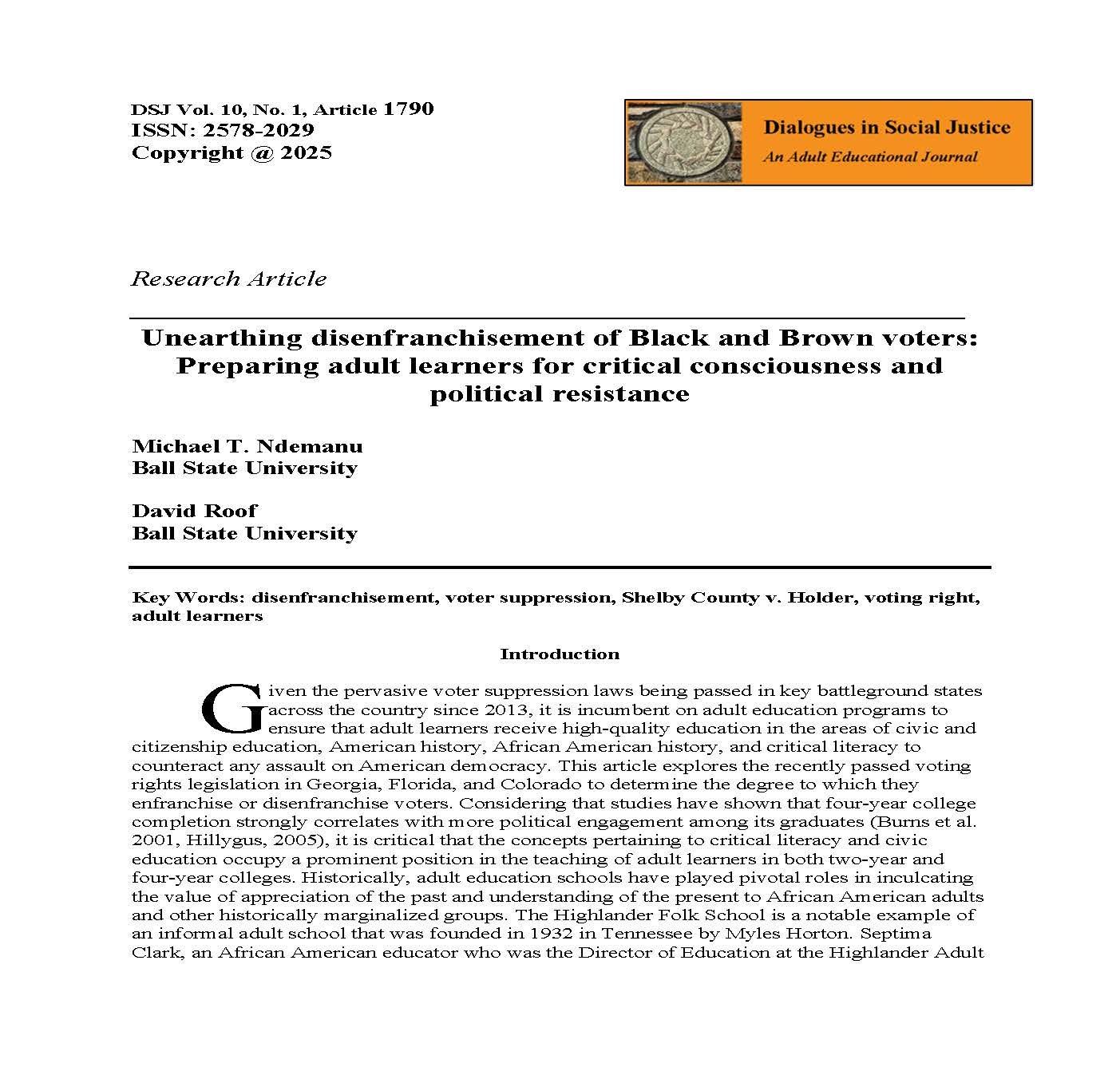Unearthing the disenfranchisement of Black voters:
Preparing adult learners for critical consciousness and political resistance
DOI:
https://doi.org/10.55370/dsj.v10i1.1629Abstract
This paper examines voting laws that have been enacted in Florida, Georgia, and Colorado within the last decade to determine the extent to which they promote enfranchisement or disenfranchisement of eligible voters. The findings show that following Shelby County v. Holder Supreme Court ruling in 2013, Florida, Georgia, and several other “battleground” states have enacted voting laws that disproportionately prevent eligible Black voters from registering to vote and from voting. As the implication of the study, the authors extoll the virtue of educating citizens about the sacrosanctity of an electoral process that is inclusive and free from voter suppression. They recommend an adult education curriculum that encompasses a robust civic and citizenship education as well as critical literacy in two-year and four-year colleges as well as in the informal and non-formal adult education sector to raise adult learners’ critical consciousness on oppressive electoral laws and ways to resist them.

Downloads
Published
Issue
Section
License
Authors who publish with this journal agree to the following terms:
a. Authors retain copyright and grant the journal right of first publication with the work simultaneously licensed under a Creative Commons Attribution License that allows others to share the work with an acknowledgement of the work's authorship and initial publication in this journal.
b. Authors are able to enter into separate, additional contractual arrangements for the non-exclusive distribution of the journal's published version of the work (e.g., post it to an institutional repository or publish it in a book), with an acknowledgement of its initial publication in this journal.
c. Authors are permitted and encouraged to post their work online (e.g., in institutional repositories or on their website) prior to and during the submission process, as it can lead to productive exchanges, as well as earlier and greater citation of published work (See The Effect of Open Access).

